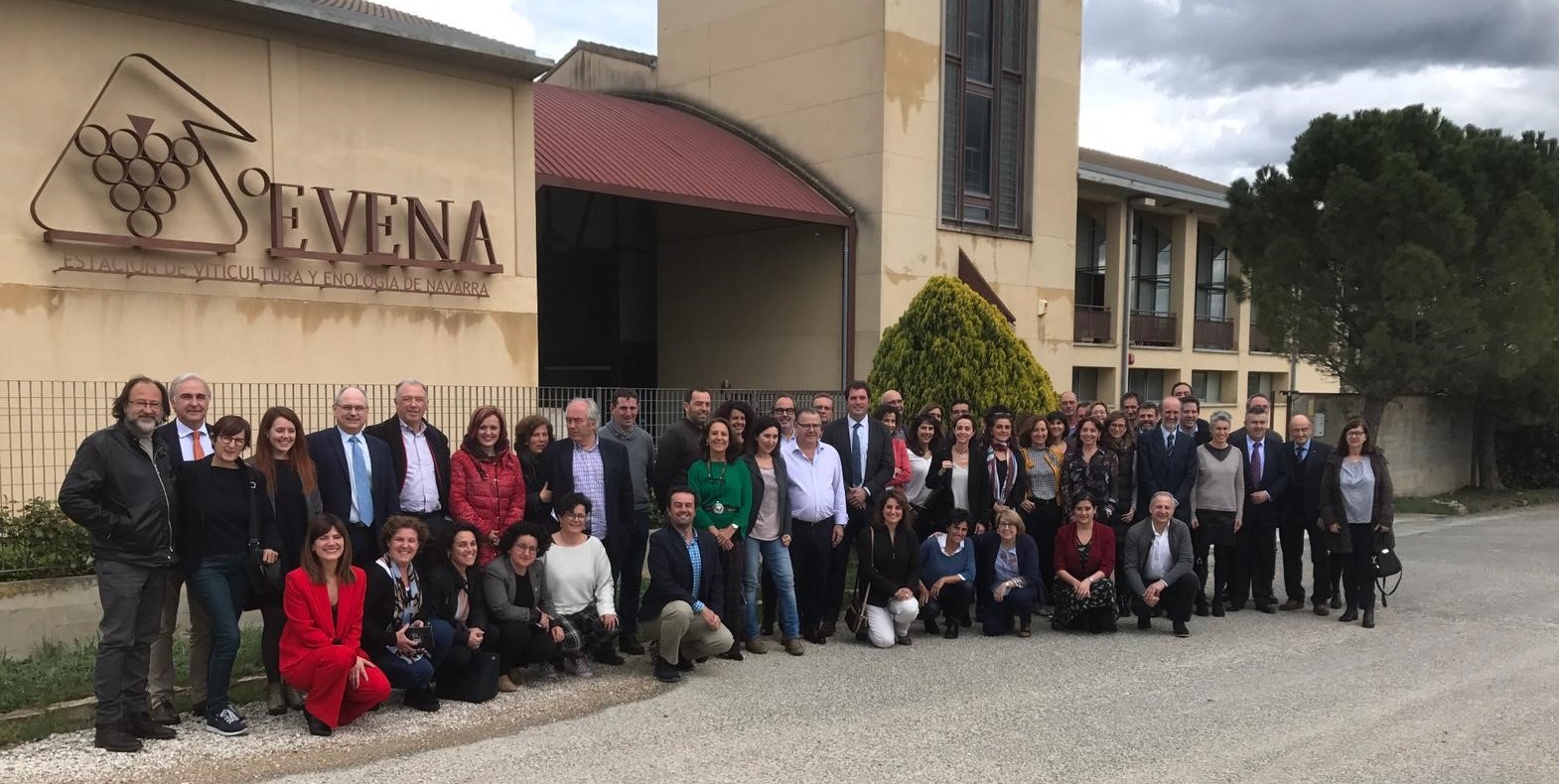
27 de April de 2019
Distinct quality brands from different autonomous communities meet in Olite, Navarre, to analyze their contributions to rural areas in terms of social, economic, cultural, and environmental sustainability.
04/26/2019
The National Rural Network, at the proposal of the Spanish Conference of Wine Regulatory Councils (CECRV) and the Spanish Association of Denominations of Origin - ORIGEN ESPAÑA, held the conference " The socio-economic, cultural and environmental role of DD.OO. in rural areas " on April 25 in Olite (Navarra), where it brought together various stakeholders in the agri-food and wine sectors from across Spain. The objective of this conference was to disseminate the work carried out by Denominations of Origin in rural areas, as a source of economic sustainability, a tool for preserving natural ecosystems, and an instrument that contributes to revitalizing and energizing the cultural resources of these areas.
Regulation (EU) No 1151/2012 establishes the objectives that a differentiated quality product must pursue, aimed at ensuring fair incomes for farmers and producers included in these systems, providing clear information on the products and their geographical origin, and guaranteeing respect for the intellectual property rights of protected names, ensuring fair competition and credibility. However, beyond the commercial benefits for producers, these differentiated quality brands have a real impact on rural areas, contributing to the desire to live and develop projects in rural areas .
In this context, Designations of Origin have proven to be effective tools against depopulation and the fixation of population in rural areas , configuring and structuring the territory around the growth of the primary (production), secondary (processing) and tertiary (tourism) sectors. One of the ideas that has gained most importance during the development of the day has been the proposal to create synergies with other areas and sectors, thus increasing the commitment to the main agents in the territory and evolving in the definition of business strategies linked to these brands that allow the establishment of sectoral guidelines, discovering new opportunities in rural areas. Another of the ideas included in this local development approach is to reinforce the involvement of the Designations of Origin in their relationship with the Local Action Groups , as they have a strong connection with the territory and can thus be engines that drive and promote associationism.
The role of Designations of Origin (DOs) as generators of ecosystems that are beneficial to the environment , which preserve and promote biodiversity and can therefore play a very important role in the fight against climate change, has been emphasized. Finally, the value they hold as brands and their contribution in terms of cultural roots and the creation and distribution of value has been addressed, not only economically, but also as an element of promoting the historical and artistic heritage of an area through tourism linked to DOs.
The experience of the DO Bullas and the PDO Pimentón de la Vera , as an example of a tool against depopulation in the interior of the Region of Murcia and the north of Extremadura, the DO of Utiel-Requena and the PDO Mexillón of Galicia , as generators of sustainable products and generators of positive ecosystems for the environment and the Jabugo DOP due to the economic impact of its product in the Huelva mountains. The commercial strategy and the promotion of designations such as the Ribeira Sacra DO , the Manchuela DO , and the DOP Idiazábal .
Ultimately, this event served to demonstrate that Designations of Origin are tools against depopulation and a source of sustainability because their products can be produced sustainably without depleting resources or harming the environment.
Denominations of Origin make people proud of their work, helping to offer young people, and future generations, a future based on social and economic development. They also contribute to creating synergies between historical heritage, art, and gastronomy, serving as a benchmark and attraction for tourism.











